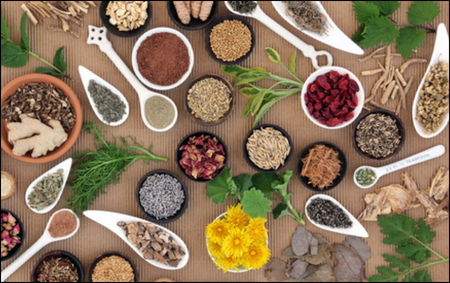AYURVEDIC HERBS FOR NURTURING LIVER
The liver, the largest internal organ with multifaceted functions is at the forefront of numerous global health concerns. From rising rates of liver diseases to challenges in access to treatment and preventive measures, the current landscape presents a complex tapestry of issues affecting liver health worldwide. In this article, we delve into the prevailing global health concerns surrounding the liver, shedding light on the current situation and exploring potential avenues for intervention and improvement.

Liver diseases, including viral hepatitis, fatty liver disease, liver cirrhosis, and liver cancer, impose a substantial burden on global health. The World Health Organization (WHO) estimates that approximately 2 million deaths annually are attributed to liver-related conditions, with liver cancer being the third leading cause of cancer-related deaths worldwide. Factors such as obesity, alcohol consumption, viral infections, and lifestyle habits contribute to the escalating prevalence of liver diseases.
Ayurveda, the ancient system of medicine from India, offers a treasure of herbs known for their profound effects on various aspects of health including liver function. Rooted in holistic principles, Ayurveda herbs aim to restore balance and vitality to the body. Let’s delve in to some of the most revered Ayurvedic herbs renowned for their liver – nourishing properties.
- Kutki – It is also known as Picorrhiza kurroa, prized in Ayurveda for its ability to support liver health. It contains kutkin, a compound known for its hepatoprotective properties. Kutki stimulates bile production, aids in detoxification, and helps regenerate liver cells. It is often used to treat liver disorders such as jaundice, hepatitis, and cirrhosis.
- Bhumi Amalaki (Phyllanthus nipuri) – Bhumi Amla also called a “stonebreaker” is a potent liver tonic in Ayurvedic medicine. It contains bioactive compounds that protect the liver from damage caused by toxins and oxidative stress. Bhumi Amla supports liver function, promotes bile flow, and aids in the elimination of harmful substances from the body. It is used to treat liver conditions like Fatty Liver disease and Hepatitis.
- Guduchi (Tinospora cordifolia) – Guduchi also known as Giloy, is a versatile herb revered for its rejuvenating properties in Ayurveda. It supports liver detoxification, enhances immunity, and reduces inflammation. Guduchi helps strengthen the liver’s defense mechanism against infections and environmental toxins. It is commonly used to improve liver functions and alleviate symptoms of liver disorders.
- Punarnava (Boerhavia diffusa) – Punarnava meaning ‘renewer’ in Sanskrit is a potent herb known for its detoxifying and diuretic properties. It supports liver and kidney function by promoting the elimination of toxins and excess fluids from the body. Punarnava helps reduce liver congestion, inflammation, and swelling. It is used in Ayurvedic formulations to treat liver conditions such as Ascites and Liver diseases.
- Bhringaraj (Eclipta alba) – Bhringaraj also known as ‘False Daisy’ is a revered herb in Ayurvedic medicine known for its hepatoprotective and anti-inflammatory properties. It supports liver detoxification, improves bile flow, and protects liver cells from damage. Bhringraj is used to treat liver disorders, jaundice, and hepatitis. It also promotes Hair growth and enhances overall vitality.
- Kalmegh (Andrographis paniculata) – Also known as “King of Bitters, is a revered herb in Ayurveda as it possesses a plethora of medicinal properties, including its notable efficacy in promoting liver health as it contains potent bioactive compounds, including andrographolides, flavonoids, and polyphenols, which exhibit hepatoprotective effects. These compounds help shield the liver from damage caused by toxins, free radicals, and inflammation, thereby promoting Liver function.
- Kaasni (Cichorium intybus or Chicory) – It is a versatile herb that it rich in anti – oxidants and bio-active compounds that support the liver’s detoxification processes. It aids in the elimination of toxins, metabolic waste products, and harmful substances from the body. It also contains anti – inflammatory properties due to which it helps reduce inflammation in the liver and mitigate tissue damage due to which it provides relief in liver diseases where chronic inflammation is a classic feature like hepatitis, fatty liver disease, and cirrhosis
- Kantakari (Solanum Xanthocarpum)- It possesses hepatoprotective properties, which help shield the liver from damage caused by toxins, oxidative stress, and inflammation. Its bioactive compounds, including alkaloids, flavonoids, and glycosides, exert protective effects on liver cells, promoting their resilience and enhancing liver functions.
Ayurvedic herbs offer a holistic approach to promoting liver health by addressing the root causes of imbalance in the body. Incorporating these herbs into your wellness routine, along with lifestyle modifications and dietary changes, can help nurture and support optimal liver function. As with any herbal remedy, it’s essential to consult with a qualified Ayurvedic practitioner or healthcare professional before beginning any new regimen, especially if you have pre-existing health conditions or are taking medications. Embrace the wisdom of Ayurveda to nourish your liver and cultivate vibrant health and vitality.
There are several formulations of Planet Ayurveda that have been prepared by doing a thorough research on the herbs and its effect for the betterment of liver to provide maximum benefits to patients suffering from liver diseases.
They are as follows:-




